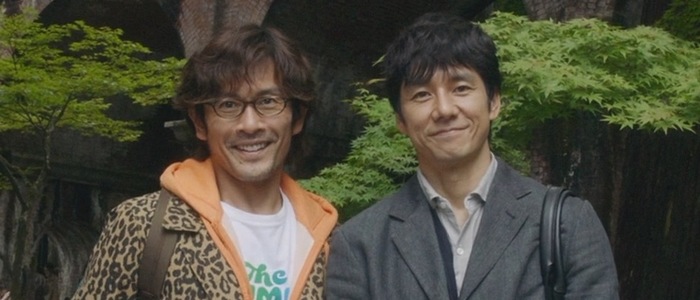
The What Did You Eat Yesterday movie is the sequel to the Japanese BL drama. This slice-of-life story focuses on a middle-aged gay couple who live together. The film begins with the closeted protagonist taking his boyfriend on vacation, showing a surprising amount of openness in public. His partner is flattered, but he begins to wonder what could have prompted this uncharacteristic change in behaviour.
If you loved the original drama, you'd definitely enjoy the What Did You Eat Yesterday movie. This excellent follow-up replicates the successful formula, carrying the same hilarious humour, nuanced storytelling, and tasty recipes. Beneath the charming comedy, the film gently approaches emotional themes about family, relationships, and long-term commitment.
What Did You Eat Yesterday Movie Summary
Title:
きのう何食べた?
Movie Info:
Japan (2021)
Genre:
Romantic comedy
About:
What Did You Eat Yesterday is a nice & heartwarming film.
BL Content:
Yes, What Did You Eat Yesterday has a gay couple.
Plot
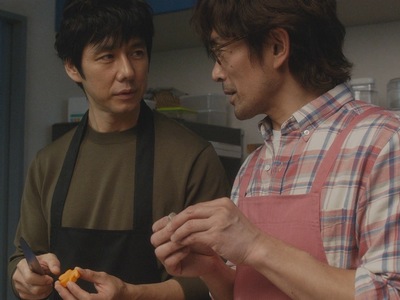
Shiro and Kenji are two long-term boyfriends who live together. Both in their forties, they have been dating for many years. The two men get along despite their different personalities and backgrounds. Shiro is cautious, stingy, and reserved, whereas Kenji is free-spirited, extravagant, and flamboyant. They balance each other's personalities to make the relationship work.
Shiro works as a lawyer. Despite doing his job well, he avoids working overtime or taking on intense cases. Shiro is eager to return home on time to cook dinner for his hairdresser boyfriend. He is a talented cook who learned many recipes from his mother. Kenji loves coming home to enjoy Shiro's tasty meals.
The leads are close friends with Kohinata and Wataru, another gay couple. Kohinata is a sophisticated man who works in a high-level media career. He is around Kenji and Shiro's age, whereas Wataru is a decade younger. While Kohinata is calm and mature, Wataru is lazy, spoiled, and rude. Despite their noticeable differences, Kohinata is smitten with his boyfriend and shares an unusual relationship dynamic.
Raised in a traditional family, Shiro's parents are not accepting of their son's sexuality. They disapprove of him dating a guy. Kenji has visited Shiro's family once during New Year's Day in the past, but that's the extent of their limitations. Shiro is also deeply closeted and hasn't come out to his coworkers. He feels uncomfortable drawing attention to his relationship with Kenji in public.
The couple goes on vacation for Kenji's birthday. During the trip, Shiro is surprisingly forthright and open about being together. Typically, he's more covert and doesn't want anyone to figure out their relationship. While Kenji is delighted by their close bond, he is also suspicious of this uncharacteristic behaviour. Kenji wonders what could have prompted Shiro to change his attitude.
What Did You Eat Yesterday Movie Cast
Characters
Shiro
Hidetoshi Nishijima (西島秀俊)
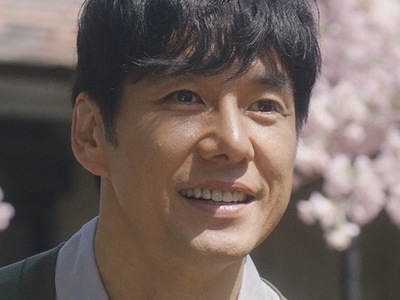
Shiro is a lawyer at a small firm. Unbeknownst to his coworkers, he is in a long-term relationship with his boyfriend, Kenji. They live happily together, and Shiro looks forward to returning home every night to cook a homemade meal. Shiro is closeted and insecure about his sexuality, especially around his traditional parents.
Kenji
Seiyou Uchino (内野聖陽)
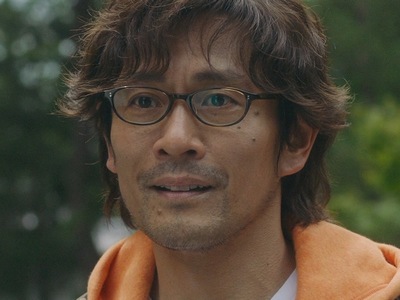
Kenji is a hairdresser at a local salon who lives with his long-term boyfriend, Shiro. Unlike his serious and reserved partner, he has a bright, enthusiastic personality. Kenji enjoys being tactile, although Shiro is often shy about displaying affection. Kenji's mother is also a hairstylist who runs her own salon.
Supporting Cast
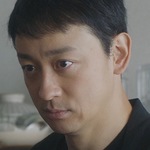
Kohinata
Koji Yamamoto (山本耕史)

Wataru
Hayato Isomura (磯村勇斗)

Kayoko
Misako Tanaka (田中美佐子)
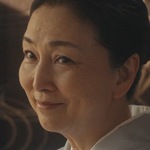
Shiro's mom
Meiko Kaji (梶芽衣子)
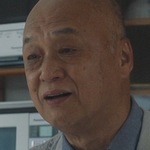
Shiro's dad
Ryosei Tayama (田山涼成)

Kenji's mom
Kaoru Okunuki (奥貫薫)
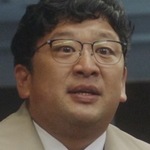
Osamu
Chan Kawai (川合正悟)

Yoshie
Atsuko Takaizumi (高泉淳子)
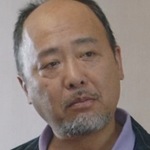
Miyake
Makita Sports (マキタスポーツ)

Reiko
Kaoru Okunuki (奥貫薫)

Tabuchi
Hokuto Matsumura (松村北斗)
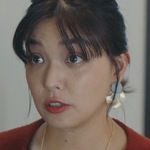
Mikko
What Did You Eat Yesterday Movie Review
Review
Movie Review Score: 9.1
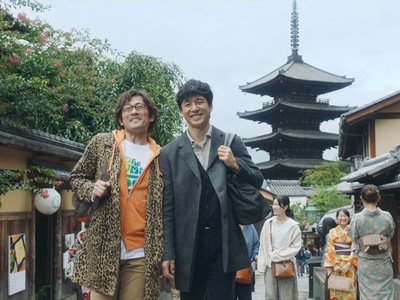
The What Did You Eat Yesterday movie is a charming follow-up to the televised drama. This sequel encapsulates everything I loved in the original, including the same gentle humour, sensitive storytelling & heartwarming messages. The series is funnier and devotes more time to lighthearted filler. However, I like the two-hour film because the narrative themes are compact and cohesive. Regardless, both adaptations are enjoyable for similar reasons, achieving the best combination of comedy and sentimentality.
This movie thrives on its normalcy. Although the leads have hilarious reactions or silly misunderstandings, they're an ordinary couple leading a domesticated life. Their daily schedule involves working during the day, returning home at night, cooking dinner, and then eating together. The characters are relatable, so it's easy to feel immersed in their cozy, down-to-earth relationship. Despite the simplicity, the story successfully creates amusing scenarios and compelling tensions out of their everyday routine. The low-key situations are high-key entertaining.
What Did You Eat Yesterday is supported by its endearing leads. Shiro continues to be a complex protagonist with fascinating internal struggles. He's torn between his love for Kenji, his obligations to traditional elderly parents, and his self-consciousness about being gay. The story highlights Shiro's kindness and cowardice, depicting a flawed character with sympathetic circumstances. Similarly, the movie showcases Kenji's perspective with thought and care. We embrace his vivacious personality as much as his emotionally vulnerable moments.
Although What Did You Eat Yesterday is fun and easygoing, the movie has various heartfelt storylines. The New Year's subplot leads to several poignant exchanges between the leads. I love their intimate discussion when Kenji drops the cheery persona to reveal his wounded feelings. I also enjoy how this conflict resolves, including a powerful teary-eyed performance from Kenji's actor (Seiyou Uchino). Likewise, his costar (Hidetoshi Nishijima) offers a nuanced portrayal with poise and sincerity. Both leads handle the comedic jokes and dramatic scenes equally well.
This meaningful movie normalizes an older gay couple for mainstream audiences. The characters are presented flatteringly, shown to maintain a loving and stable long-term relationship. The film emphasizes Shiro & Kenji's emotional connection, proving the strength of their love will overcome personal adversities. Sadly, What Did You Eat Yesterday isn't bold enough to promote a physical bond. Whenever Kenji initiates contact, Shiro dodges him playfully. His aversion bothers me because it sends a negative subliminal message about same-sex affection.
The modesty of the romance is my only grievance about What Did You Eat Yesterday. The best BL dramas are willing to display passion between the gay couple, whereas this movie avoids it at all costs. Nonetheless, I still give a stellar review because the rest of the film is perfect. The story feels engaging, the characters are lovable, and the performances resonate with me. Overall, What Did You Eat Yesterday fills me with glee, enthusiasm, and optimism. This excellent sequel strengthens my love for the franchise, solidifying it as one of my all-time favourites.
Summary
Sensitive story
What Did You Eat Yesterday successfully combines gentle humour and heartwarming messages in its storylines. It creates entertaining scenarios out of an ordinary couple's everyday routine.
Gentle romance
This movie emphasizes Shiro and Kenji's emotional bond, endorsing their long-term relationship. However, it shies away from physical affection. The boyfriends don't even embrace each other once.
Emotional acting
Both veteran actors give powerful and nuanced performances throughout the movie. They can handle the comedic jokes and dramatic moments equally well.
Happy ending
The What Did You Eat Yesterday movie has a happy ending. The leads reaffirm their commitment to each other, and their relationship comes out more strongly than before.
Great artistry
This movie is supported by elegant and polished production values. All the visuals look bright, clear, and vibrant. The final scene is filmed beautifully and concludes the story with majestic splendour.
91%
What Did You Eat Yesterday is an excellent movie sequel that carries the same charm and comedy as the original drama. I love the funny jokes, complex characters, emotional drama & warm sentimentality.
What Did You Eat Yesterday Movie Explained
Analysis
- Shiro's guilt
- Kenji
- Shiro's family
- Insecurity
- Injustice
- Shiro
- Shiro's love
- Legacy
- Kenji vs Shiro's parents
- Kenji's love
- Pride
- Shiro's growth
Shiro's guilt
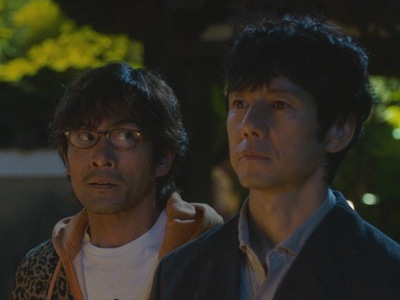
The What Did You Eat Yesterday movie begins with Shiro and Kenji going on a couple's trip to Kyoto. Surprisingly, Shiro goes against his thrifty nature and plans a fancy vacation for his boyfriend's birthday. Furthermore, he seems open about their relationship in public. The old Shiro, who's deep in the closet, would feel uncomfortable about others viewing them as a couple. Kenji is delighted yet startled by his partner's uncharacteristic behaviour. He senses something is off with Shiro.
The movie exaggerates Kenji's unfounded suspicions for comedic effect. Initially, he panics over the possibility of Shiro dumping him, describing this vacation as "his last moment of happiness". Then, he jumps to the worst-case scenario and assumes his boyfriend might be gravely sick. Beneath the humour, there's something sad about Kenji's insecurities. Shiro's public displays of affection are so rare that Kenji can't comprehend his kindness. Holding hands and taking pictures may be ordinary activities for any couple, but they're out of the norm for this relationship.
Eventually, Kenji discovers the real reason. It turns out Shiro's traditional parents don't want Kenji to visit them for New Year's. Since they feel uneasy around their son's boyfriend, the mom fakes an excuse of being "ill". Shiro feels awful about disinviting Kenji from his family home, so he plans this expensive birthday trip as an apology. Do you know how some husbands treat their spouses nicely after an affair? Shiro does the equivalent for closeted gay men, overcompensating for his guilty conscience.
Kenji
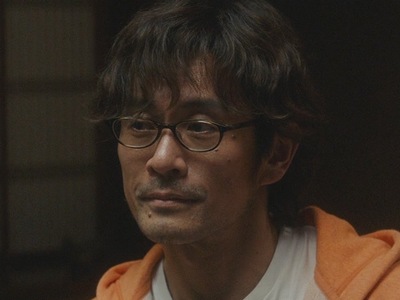
Kenji's immediate reaction is shock and sorrow. The rejection is hurtful, being told you aren't welcomed into your lover's residence. Kenji thought he had made a breakthrough by connecting with Shiro's parents, but their message was clear: you aren't part of our family. Soon, Kenji's agony turns into annoyance. For a quick moment, a contemptuous expression flickers on his face. Anyone would feel insulted by the snub.
Kenji's attitude changes after witnessing Shiro's remorseful apology. It isn't Shiro's fault his parents reacted homophobically, yet he harbours guilt for hurting Kenji. That's why he ventures out of his comfort zone on this vacation. Despite his anxieties about spending money or doing relationship activities, Shiro makes an effort to appease his boyfriend. Kenji understands Shiro's good intentions. Instead of burdening him with more guilt, Kenji gives a lighthearted response. He uses cheerful humour to defuse the stressful situation, putting Shiro at ease.
Due to his boyfriend's graceful behaviour, Shiro thinks everything is resolved. The movie appears to move on from this conflict, but the tensions are secretly simmering under the surface. Kenji isn't honest about his feelings, feigning nonchalance and hiding his discontent. As the story progresses, Shiro becomes more sensitive to his suffering partner. At work, a colleague faces similar troubles with her in-laws, prompting him to draw parallels. After assessing her situation from an outsider's perspective, Shiro gains clarity and empathizes with Kenji better.
Shiro's family
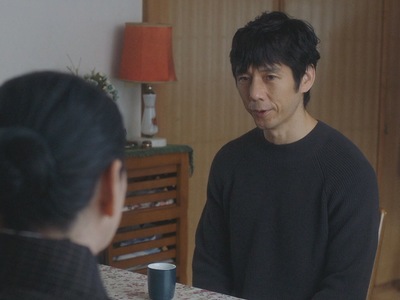
Shiro has a complicated relationship with his family, who comes from an old-fashioned generation. His parents had conventional expectations for their only child, like marriage and grandkids. Instead, they'll never enjoy these experiences while envying their friends and neighbours. Shiro's sexuality is a sore topic in their household, discussed as little as possible during his home visits. They don't want to acknowledge their son is gay or lives with a long-term partner.
Shiro's insecurities come from feeling like he disappointed his parents. From his perspective, he deprived them of traditional family experiences because of his sexual orientation. Shiro harbours lifelong guilt in his conscience, so he overcompensates by being the obedient child. He doesn't dare to challenge his parents and cause distress. His mom tells him the prospect of seeing Kenji makes her sick, an offensive stance that Shiro should've opposed. Yet, he just wants to get along and won't stand up to them.
Only Wataru, known for his brutal honesty, calls out Shiro's spinelessness. Wataru shows disdain for heteronormative structures and doesn't understand why anyone feels obligated to their parents. His provocative words shame Shiro, making him scrutinize introspectively. Shiro realizes a vacation won't make things right with Kenji. Instead, he confronts his family and refuses to visit their home for New Year's. If Kenji can't come, I won't attend either. Shiro compares Kenji to his spouse, a powerful description that emphasizes his partner's importance and status.
Insecurity
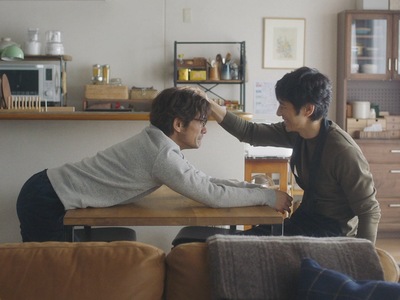
While Shiro handles his family crisis, Kenji experiences a different lesson. His character learns to be emotionally transparent instead of bottling up negative feelings. The movie uses Kenji's workplace drama as an example. His salon coworker patronizes his girlfriend, speaking to her bluntly. Kenji chastises him for his rude behaviour, yet Tabuchi insists he's honest about himself around his closest companion. Why put up a façade when you're unhappy in a relationship?
Later, the leads have a heartfelt chat about the New Year's invitation. Kenji pretends to be okay and makes excuses for Shiro's family. Yet, Shiro sees through the dishonesty. "I know you're hurting." Finally, Kenji opens up about his wounded feelings. Beneath his cheery persona, he's upset about Shiro's homophobic parents. Yet, he fears speaking up jeopardizes his relationship with Shiro. Despite dating for years, Kenji is a secret lover without official status. Kenji feels insecure about what he means to Shiro. He acts carefree to avoid the heartbreak of Shiro prioritizing his family over him.
Their next scene is powerful because Shiro puts all of Kenji's vulnerabilities at ease. He shows solidarity with his boyfriend by staying with him over his parents for New Year's. Kenji is hesitant and wants him to reconsider. However, Shiro insists on spending time with the most important person in his life. It's just you and me, simple as that. Kenji tears up, touched by the significance of this sentimental statement. After worrying for so long, he finally receives the commitment, validation, and reassurance from his long-term partner.
Injustice
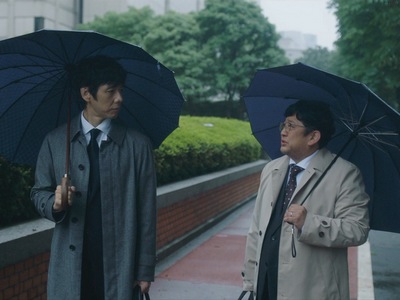
An ongoing subplot is Shiro's law firm client, a homeless man falsely accused of murder. The plaintiff didn't commit the crime, but he was still sentenced to nine years in prison. The old man feels hopeless and doesn't think appealing the harsh verdict makes a difference. He comes from a marginalized community whose voices fall on deaf ears. He gets kicked and spat on for existing. Putting up a fight brings him more suffering, and people of privilege won't understand his pain.
The old man speaks in context to being homeless, but his statements are unfortunately applicable to the LGBT community as well. Voices fall on deaf ears? Check, especially in the conservative societies of East Asia. Getting kicked and spat on? Check, and the violence is sometimes even worse if you dare to look up morbid news headlines. Interestingly, the movie uses this minor character to draw parallels to the injustices Shiro faces as a gay man. He often experiences discrimination and unfair judgment because of his sexual orientation.
Despite their subtle similarities, Shiro doesn't want to help the homeless man overturn his verdict. Instead, his colleague is way more passionate. Osamu criticizes the senior lawyer for not fighting against the injustices. This storyline highlights the pessimism in Shiro's character. Unlike many activists striving for equality, Shiro is docile and doesn't believe he can change the system. He endures prejudice without opposition, accepting it as a part of life. Thankfully, Osamu is a motivated ally who encourages Shiro to speak up against persecution.
Shiro
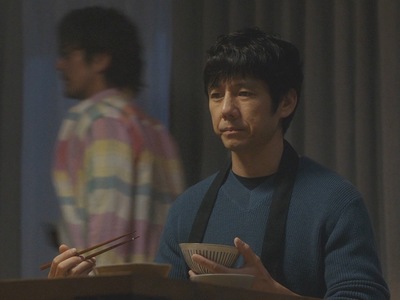
If the movie's first half focuses on Kenji's insecurities, the second act highlights a similar issue from Shiro's perspective. The story transitions into a casual subplot about Kenji's hair loss, which he hides from his partner. This secrecy triggers Shiro's suspicions, sending him into a downward spiral. He notices Kenji's chumminess with a coworker, not finishing meals, and sneaking visits to the hospital. Shiro feels confused and anxious about losing his relationship.
This storyline repeats similar themes to Kenji's misunderstanding during the vacation. However, the emphasis is on Shiro's fear of speaking up. He sees many alarming red flags in the relationship. Yet, he hems and haws, internalizing his worries instead of communicating them to his partner. Shiro's cowardice is a prominent trait that has defined his character since the series started. He's scared of letting others learn the truth about his sexuality. Likewise, he's afraid to voice his concerns about his boyfriend, impaired by excessive overthinking.
As the plot progresses, Shiro is involved in Kohinata and Wataru's silly quarrel. Shiro advises his friend to respond maturely and show restraint. However, Kohinata exclaims he cannot stay calm after losing the love of his life. His emotional outburst forces Shiro to reassess his subdued behaviour around Kenji. Shiro is clearly upset, yet he refuses to be forthright about what's bothering him. It takes courage to act like Kohinata, who's honest about his feelings for Wataru and wears his heart on his sleeves. He inspires Shiro to be less timid and open up about his vulnerabilities.
Shiro's love
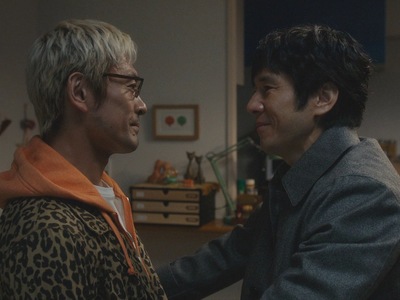
While Shiro freaks out over losing his life partner, Kenji is simply worried about losing his hair. Shiro worked himself into a tizzy while his partner never had any inkling. Kenji returns home with a stylish new haircut, a seemingly innocuous gesture. Yet, Shiro gets the wrong idea and thinks the makeover is another urgent cry for help. It leads to a funny encounter where Shiro reacts to Kenji's haircut with overstated melodrama. "Tell me you aren't going to die."
This moment echoes how the movie began, except the roles are reversed. At the time, Shiro couldn't understand why his boyfriend overreacted. Now, the tables have turned. Shiro understands the anguish of losing his loved one, which causes him to lose his composure and rationality. Kenji quickly clarifies the misunderstanding. Of course, he can't resist teasing his boyfriend playfully, using his earlier words against him. Nonetheless, he appreciates knowing how much Shiro cares about their relationship, enough to equate it to life-or-death significance.
Most of the time, Shiro is emotionally reserved, too embarrassed to verbalize how much he loves Kenji. Previously, he stated that Kenji is the most important person in his life. I don't doubt his sincerity, but his confession was expressed calmly and reassuringly. This moment is different because Shiro's hysterical reaction comes from a raw instinct. His desperation demonstrates precisely how much Kenji means to him. More than any other exchange in the franchise, this scene conveys Shiro's love for Kenji the most convincingly. I can feel the intensity of his devotion.
Legacy
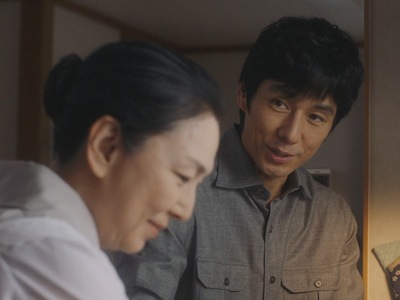
An ongoing subplot involves Shiro's neighbour, Kayoko. Her daughter is pregnant, and she's about to become a grandmother. She tells him the baby is called Goro, coincidentally sharing the same name as Shiro's father. This trivial detail excites him. As he shares the anecdote with his mom, Shiro reflects, "The baby isn't related to me, but it's nice he has my father's name." His remark earns him a pensive look from his mom, but he doesn't meet her gaze.
This subplot highlights an unspoken tension between Shiro and his parents. As a gay man living in Japan, he can't grant them grandkids. He's unable to carry the family legacy, clashing with his traditional family's expectations. The topic is addressed explicitly in the series, whereas it's more covertly mentioned in the movie. Nonetheless, What Did You Eat Yesterday achieves a powerful impact in an understated way. It invites the viewers to read between the lines about Shiro's message to his mom.
In some progressive parts of the world, LGBT couples can adopt kids, use surrogates, or become foster parents. In Japan and many societies where BL takes place, this possibility is much more restricted. Shiro is aware that he and Kenji will be a childless couple for the rest of their lives. The closest he gets to fulfilling his family legacy is through the neighbour's baby sharing his father's name. Shiro gently eases his mom into this reality. You have a gay son, which means you won't be a grandmother. Like it or not, these are the facts you must accept.
Kenji vs Shiro's parents
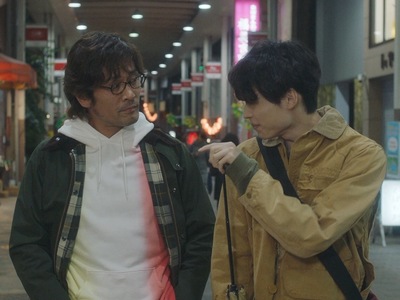
Kenji and Shiro's family never interact in the movie. Kenji respects their wishes and doesn't visit them during New Year's or other occasions. The characters are aware of each other's existences, but they lead their separate lives. Meanwhile, Shiro maintains his relationships with both parties. Despite their disagreement, he still visits his elderly parents and doesn't cut ties with them. As much as Shiro is a committed boyfriend, he's a dutiful son who wouldn't abandon his family obligations.
Ideally, Kenji wants to get along with his in-laws. We've seen how much he clicks with his mom and older sisters. Given a chance, he might be able to charm Shiro's parents, improving their opinion of him over time. Unfortunately, they don't want to meet again. It's their loss. These homophobes are missing out on a bright, warm, and sparkling personality in their lives. Kenji could have brought a lot of enthusiasm to their household and thrown in a few free hairdressing consultations!
Although Kenji is upset about his rejection, he learns to get over it and move on. Once again, his salon coworker offers him surprising guidance. Tabuchi's girlfriend cheated, but he handled their separation amicably and admitted they weren't compatible. Kenji adopts the same carefree mentality. He doesn't force his in-laws to like him or make Shiro pick a side. Instead, Kenji accepts that they don't want a relationship with him and lets go of his resentment. Kenji has a classy "breakup" with Shiro's parents, taking the high road even when they go low.
Kenji's love
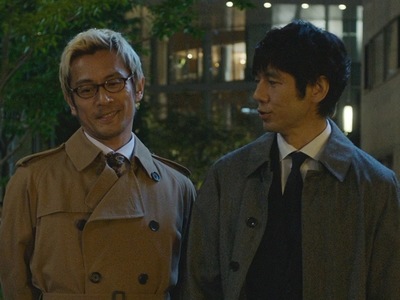
Kenji's haircut is more than a fashionable makeover. It signifies his character's new beginnings as he trims away the extra baggage in his life. Kenji cuts ties with Shiro's homophobic parents, not letting them feed into his insecurities anymore. He also bids farewell to his deadbeat father, lifting a psychological burden. Kenji may have suffered some losses in the story. However, the new hairstyle represents his fresh perspective as he takes a bad situation and turns it into a positive one.
Although Kenji removes the unhealthy relationships from the past, it's an individual journey. Kenji never forces Shiro to choose sides or disown his family. In fact, he encourages Shiro to spend more time with his mom and dad. While Kenji may be the most significant person in Shiro's life, he isn't the only important figure. Kenji doesn't want to hog his partner to himself. He understands Shiro's parents could also use the love and care from their son.
Kenji's colleague once warned that falling in love can cause you to lose your freedom. You risk committing to only one person and alienating yourself from everybody else. Kenji is conscious about not letting that isolation happen in his relationship. He doesn't want to hinder Shiro's freedom from loving his family. Kenji is willing to compromise, enabling Shiro to divide his attention among multiple loved ones. Instead of showing possessiveness, Kenji offers his partner mutual respect and reasonable boundaries, the signs of a healthy romance.
Pride
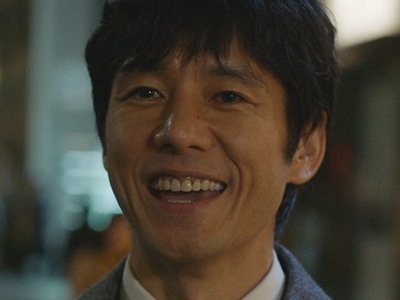
Near the end, Kenji tells Shiro to spend more time with his family. It's an empathetic remark with sentimental significance, moving Shiro by how much his partner supports him. From his perspective, the conflict between his loved ones isn't easy. Caught in the middle, he struggles with being both a dutiful son and a diligent boyfriend. Kenji's comment eases Shiro's dilemma. Kenji recognizes that Shiro cherishes the relationship with his parents and gives him comforting reassurance.
Shiro's response is the best line in the What Did You Eat Yesterday movie. He tells his boyfriend with a genuine grin, "I want to brag about you to everyone walking on this street." It's a cheeky comment from the heart, expressing Shiro's gratitude that he has such an easygoing and understanding boyfriend. The truth is Kenji puts up with a lot of Shiro's baggage. Not everybody has the patience for a neurotic closeted gay man with homophobic parents. Yet, Kenji overcomes these challenges and stands by Shiro unconditionally.
Although the story focuses on the characters' insecurities, it ends with a definitive sense of pride. Shiro is so enamoured with his boyfriend that he can't contain his love within himself. Going against his cautious nature, he wants to announce that Kenji Yabuki is the best boyfriend in the universe. Shiro's words also cleverly reference the first episode of the drama when Kenji complained about their covert romance. Fortunately, this line has a positive context in the movie. It signifies Shiro's growth as he takes immense pride in his relationship with a loving partner.
Shiro's growth
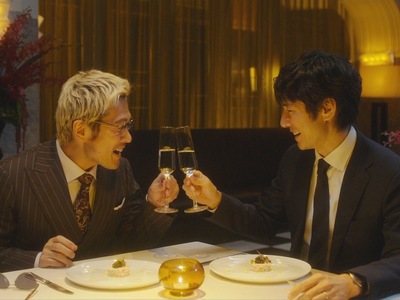
Shiro doesn't actually tell people about his relationship with Kenji. It's more a sentimental figure of speech than a legitimate action plan. Imagine if Shiro followed up on his earlier statement by kissing his boyfriend in public, demonstrating his pride and joy physically. If that had happened, I would've changed my review score to an easy A+. Sadly, the What Did You Eat Yesterday movie lacks boldness in its love story. As much as I appreciate the narrative themes and the characters' emotional bond, this romance is safe, modest, and censored.
In reality, Shiro is still in the closet and riddled with insecurities about being gay. It isn't easy to overcome four decades of internalized homophobia, after all. Shiro remains a work in progress, and his lifelong journey of self-acceptance continues as the movie ends. Nonetheless, he shows positive signs of becoming more comfortable throughout the film. Compared to the past, he's calm and relaxed around his boyfriend in public. They go on vacation, eat in restaurants, enjoy picnics, and even hold hands discreetly.
Perhaps the most telling sign is when Kenji puts a wedding ring on Shiro's finger at the restaurant. Shiro resists a little, but he eventually relents and savours the moment without that much self-consciousness. It's remarkable progress for his character. All these little gestures show Shiro and Kenji's relationship evolving as they become a more honest couple. Maybe Shiro will come out one day, or perhaps he never conquers his psychological barrier. Either way, the What Did You Eat Yesterday movie reassures us the two leads are committed to each other for life.
What Did You Eat Yesterday Movie Ending
Ending
Happy ending
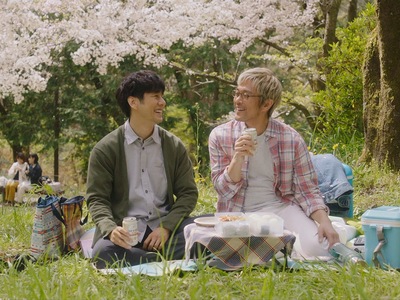
The What Did You Eat Yesterday movie has a happy ending for Shiro and Kenji. They remain committed to each other, overcoming their previous insecurities and misunderstandings. In the final scene, the leads go on an outdoor picnic date, surrounded by beautiful cherry blossoms in the spring. Shiro has packed a bento meal for them, including beer, rice balls, and meatballs made by his mother. Kenji loves the meatballs and says they taste like homemade cooking.
As the characters chat, Shiro confirms he'll continue visiting his elderly parents regularly. The only exception is New Year's, a special occasion that he plans to spend with Kenji. He intends to fulfill his role as the dutiful son, taking care of his family until their deaths. In addition, Shiro shares an interesting conversation he had with his mom. After thanking her son for visiting, Shiro's mom tells him, "From now on, I want you to put your family first." As the mother and son make eye contact, they smile knowingly at each other.
Ending explained
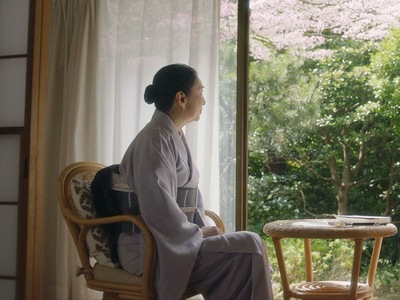
The What Did You Eat Yesterday movie doesn't end with a tidy reconciliation between Kenji and Shiro's parents. She hasn't fully accepted her gay son or welcomed his lover into her home. Nonetheless, Shiro's mom shows a willingness to evolve her thinking. The film's ending is notable because of the surprisingly touching comment from Shiro's mom. "I want you to place your family first."
Her remark is momentous for various reasons:
She acknowledges Kenji's significance in Shiro's life, putting him on the same level as his family. In other words, she agrees Kenji is the most important person to her son.
Shiro's mom changes her definition of a modern family. Contrary to her heteronormative views in the past, she now accepts that two men can form a loving family unit.
Shiro's mom wants him to prioritize Kenji ahead of his parents. If Shiro is caught in another dispute between the two sides, she understands Kenji's needs come first.
What changes her views? Maybe she senses how much Kenji means to Shiro as a life partner. Despite her homophobia, she recognizes Kenji's importance to her son's happiness. Or perhaps Shiro's comment about the neighbour's baby makes her realize the weight of his psychological strain. He has a lifelong struggle between being gay and satisfying his parents, so his mom may want to relieve his burden.
Either way, the movie concludes with Shiro and his mom reaching a mutual understanding. No, she isn't ready to have a friendly relationship with Kenji. Their tensions are similar to how many in-laws don't always get along with their children's spouses. Nonetheless, the mom acknowledges that's her issue, and Shiro doesn't need to worry. Instead, she encourages him to cherish his long-term commitment to Kenji.
Shiro and Kenji
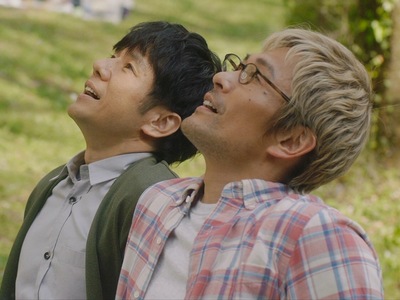
Kenji is touched by his mother-in-law's remark. He reiterates how delicious the meatballs are. Simultaneously, we see an exchange between Shiro's mother and father, who also consume beer and meatballs in their home. The movie juxtaposes the two couples enjoying their meals, which deliberately resemble each other. The similarities highlight how their love isn't that different despite their genders and generations.
As the leads continue staring at the cherry blossoms, the conversation topic turns to their grey hairs. Kenji tries using this opportunity to lean in for a kiss, but Shiro playfully dodges him. The mood remains lighthearted between them, as both characters acknowledge they are getting old. What Did You Eat Yesterday offers a hopeful and heartwarming ending that confirms the characters' lifelong commitment. In the final shot, Shiro places his hand on Kenji's, a physical affirmation of their love. The camera pans upwards as the characters look up at the sky, both smiling in contentment.
What Did You Eat Yesterday Series
Prequel
What Did You Eat Yesterday 2019 series Drama review
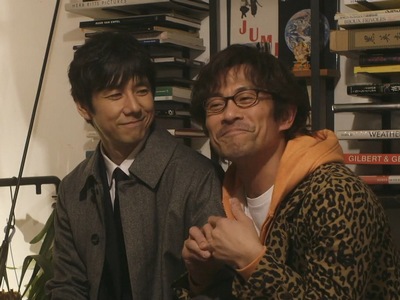
The What Did You Eat Yesterday movie is the sequel to the 2019 televised drama. You should definitely watch the twelve-episode series before this movie. The original story is hilarious, introducing the quirky protagonists and their endearing relationship dynamic. Each episode is lighthearted, entertaining, and relaxing to watch.
In my opinion, the drama and movie are pretty equal to each other. Maybe the series has an advantage simply because it's longer, allowing for more development and funny filler. Nonetheless, the film contains a compact story with cohesive themes that resonate powerfully. Both adaptations complement each other well, exhibiting the same triumphant qualities.
What Did You Eat Yesterday Movie Interview
What Did You Eat Yesterday Movie Information
Links
- Gagaoolala What Did You Eat Yesterday movie
- Instagram What Did You Eat Yesterday Instagram
- MyDramaList What Did You Eat Yesterday MyDramaList
- Twitter What Did You Eat Yesterday Twitter
- Website What Did You Eat Yesterday website
- Wikipedia What Did You Eat Yesterday Wikipedia
- Wikipedia きのう何食べた? Wikipedia
- YouTube What Did You Eat Yesterday YouTube
- YouTube What Did You Eat Yesterday playlist
You've put an incredible amount of effort into this amazing site. Thanks and well done!